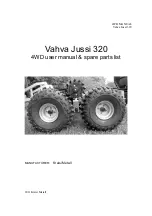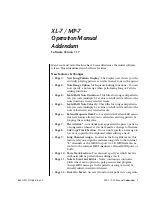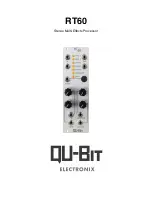
3. Only clean the product using a slightly damp cloth. Only use water and, if nec-
essary, a mild detergent.
4. Do not use high-pressure cleaners for cleaning.
2.4.7 During service and repairs
1. Carry out maintenance work as specified by the system manufacturer in the
designated time intervals.
2. Make sure that no line connections, ports, and components are disconnected
as long as pressure and voltage are applied in the system.
3. Protect the system against being switched on.
2.4.8 Disposal
u
Dispose of the product in accordance with the national regulations in your
country.
2.4.9 Supplier/operator responsibilities
1. Decide whether the operational and fully-fitted reservoirs should be subject to
an acceptance test before commissioning.
2. Observe the valid national laws and directives governing the operation of the
reservoirs.
3. Compile a set of operating instructions taking into account the equipment
used and including the following:
– Instructions on how to empty the condensate
– Maintenance information to ensure operational safety
3 Scope of delivery
• 1 x pressure reservoir
• 1 set of operating instructions
All connections must be sealed using paper caps.
4 About this product
4.1 Performance specifications
The reservoir acts as a compressed air energy storage unit to compensate for
pressure fluctuations in the compressed air network.
4.2 Device Description
See Fig. 1-4
The pressure reservoirs were produced as individual components without any
technical safety equipment for the designated area of application. The product is
designed for mainly static internal pressure.
The reservoir may only be used for stationary systems and in compliance with the
technical data.
4.3 Product identification
You can identify the product using the information indicated on the name plate.
Material number
Material number
Material number
3513000000 (V = 1 l)
3513000030 (V = 10 l)
3513000060 (V = 90 l)
3513000010 (V = 3.2 l)
3513000040 (V = 20 l)
3513000020 (V = 5 l)
3513000050 (V = 40 l)
5 Transport and storage
u
During transportation and storage, always comply with the ambient condi-
tions/temperature listed in the technical data.
6 Assembly
6.1 Unpacking
u
Dispose of the packaging in accordance with the currently applicable national
regulations in your country.
6.2 Installation conditions
u
During installation, always comply with the ambient conditions listed in the
technical data.
6.2.1 Mounting orientation
Any mounting orientation may be used for the reservoir.
6.3 Required accessories
To assemble the product you will need the following accessories which are not in-
cluded in the scope of delivery but can be ordered from us:
Accessories
Mounting
Material number
Mounting kit for reservoir 3513000030
Ø 206 mm
4519011002
Mounting kit for reservoir 3513000040
Ø 246 mm
4519011012
Mounting kit for reservoir 3513000050
Ø 276 mm
4519011022
Pressure relief valve
Depends on the application
6.4 Assembling/installing the reservoir
CAUTION
Danger of injury due to incorrect assembly
Incorrect assembly can lead to uncontrolled product or system movements.
1. Make sure that all relevant system parts are not under pressure before as-
sembly.
2. Only assemble the reservoir with the mountings specified in the online cat-
alog (refer to the online catalog at
www.aventics.com/pneumatics-catalog).
3. The reservoir must not be fitted rigidly to floors, machine base frames, or
vibration dampers.
4. Provide adequate vibration damping.
6.4.1 Connecting the reservoir pneumatics
CAUTION
Danger of injury if assembled under pressure or voltage!
Assembling when under pressure or voltage can lead to injuries and damage to
the product or system components.
1. Make sure that the relevant system part is not under voltage or pressure be-
fore you connect the product.
2. Protect the system against being switched on.
1. Make sure the relevant system part is not under pressure.
2. Remove the dust protection caps from the reservoir. Do not use any sharp-
edged tools (such as a screwdriver) to do this. The connection threads must
not be damaged.
3. Fit a pressure relief valve to the reservoir (this part is not included in the scope
of delivery).
4. Check that all pneumatic connections are properly connected or closed and
all tubing is firmly fitted.
6.4.2 Connecting the compressed air
1. Comply with the limits for pressure and temperature (see “Technical data”).
2. Make sure that the internal pressure does not exceed the working pressure PS
indicated in the reservoir identification under normal operating conditions.
However, this pressure may exceed the limit by up to 10% for a brief period
only.
7 Commissioning
Proceed as follows to commission the product:
AVENTICS™
AR1 | R412012716-BAL-001-AG | English
9










































